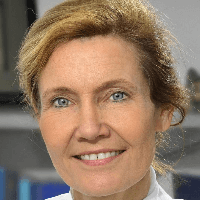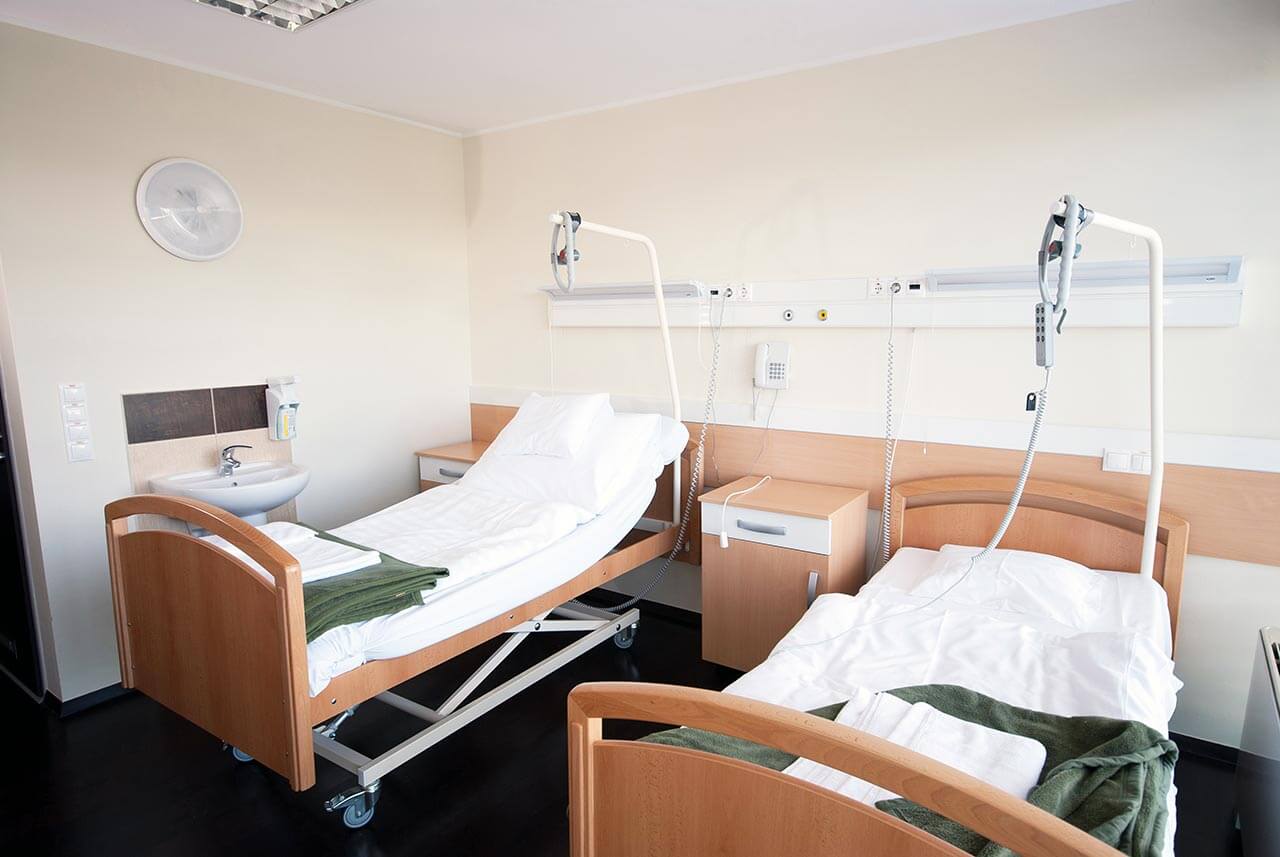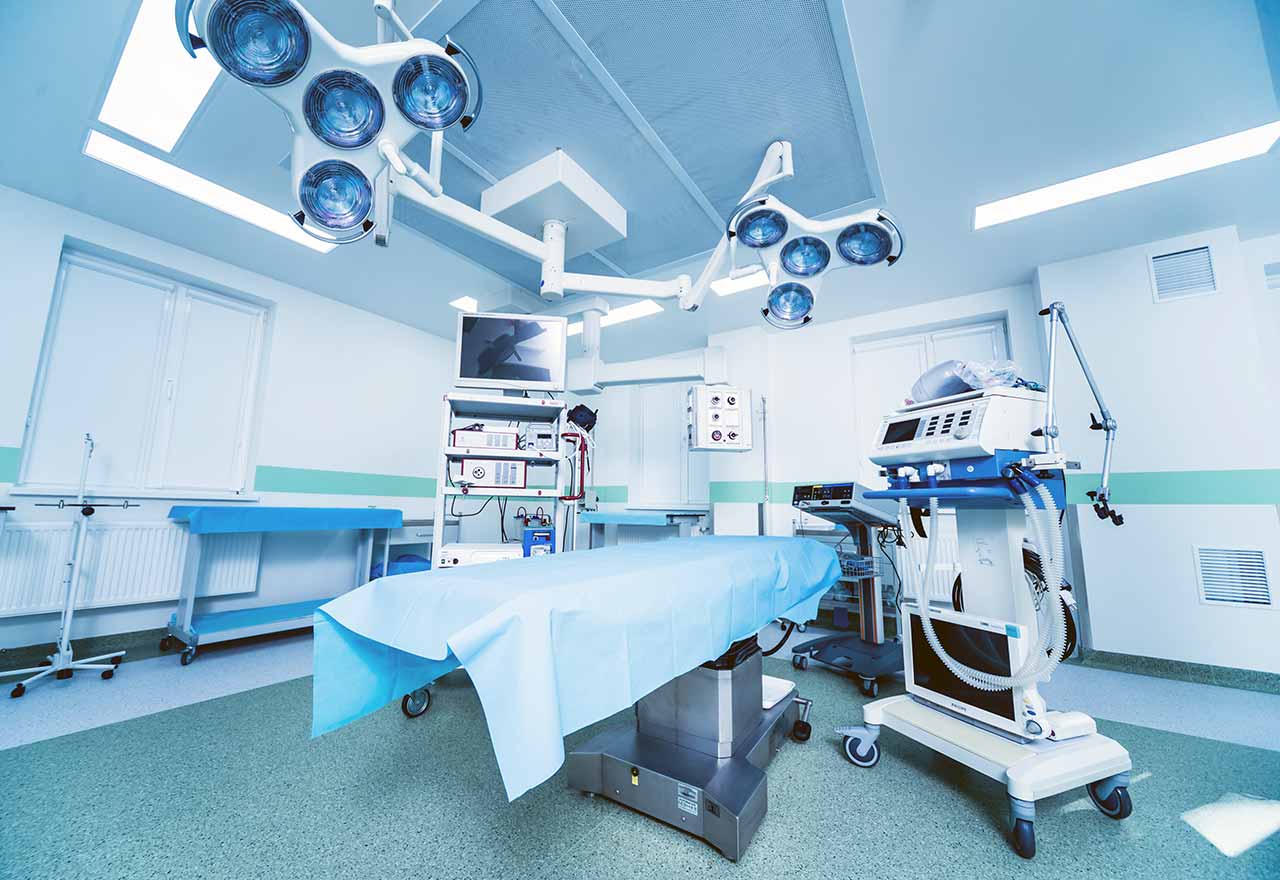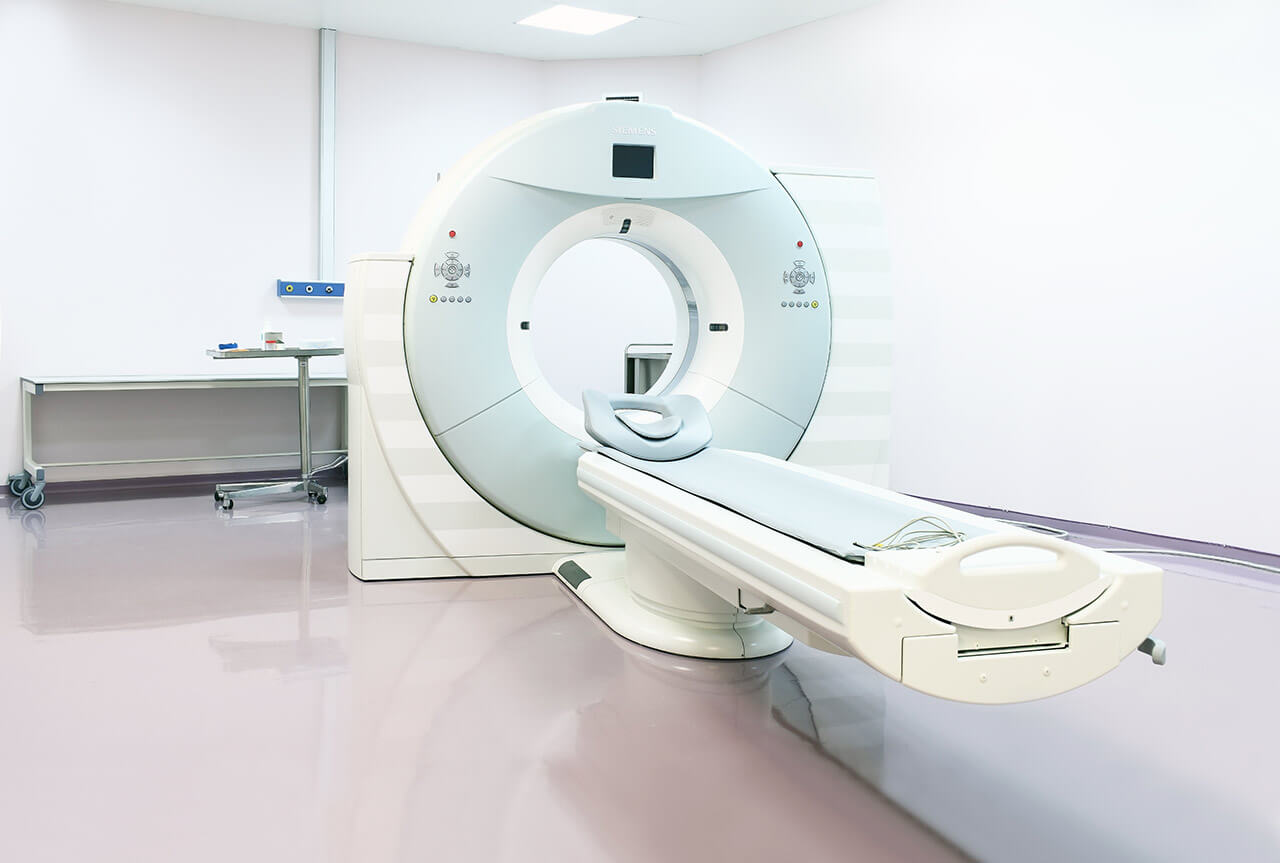
The program includes:
- Initial presentation in the clinic
- clinical history taking
- review of medical records
- physical examination
- laboratory tests:
- complete blood count
- biochemical analysis of blood (general and ionized calcium)
- general urine analysis
- hormone test (TSH, parathyroid hormone, calcitonin)
- inflammation markers (CRP, ESR)
- blood coagulation analysis (aPTT, PT, INR)
- thyroid ultrasound
- thyroid CT/ MRI (if clinically indicated, additional cost is 650/1200€)
- thyroid and parathyroid scintigraphy (if clinically indicated, additional cost is 1500€)
- nursing services
- consultation of related specialists
- treatment by chief physician and all leading experts
- explanation of individual treatment plan
Required documents
- Medical records
- Results of hormone blood tests (if available)
Service
You may also book:
 BookingHealth Price from:
BookingHealth Price from:
About the department
According to the Focus magazine, the Department of Endocrine Surgery at the HELIOS University Hospital Wuppertal ranks among the top German medical facilities specializing in the surgical treatment of thyroid diseases!
The team of the department's surgeons performs the full range of surgical interventions for the treatment of diseases of endocrine glands – thyroid gland and parathyroid glands. The department was one of the first in North Rhine-Westphalia to receive the status of the Reference Center for Thyroid and Parathyroid Surgery (certified by the German Society for General and Visceral Surgery, DGAV). The department is one of the few medical facilities in Germany that provides comprehensive thyroid cancer treatment using surgery and radioiodine therapy (in cooperation with specialists in nuclear medicine). In total, the department's endocrine surgeons annually perform more than 800 interventions for thyroid and parathyroid diseases, including malignant ones. Doctors are rightfully proud of their rich clinical experience, as well as regularly master innovative surgical techniques, which contributes to high treatment success rates.
The department is headed by Prof. Dr. med. Cornelia Dotzenrath. During her long clinical practice, the surgeon has performed thousands of operations of varying complexity and is a recognized expert in professional medical circles in Germany. According to the Focus magazine, Prof. Cornelia Dotzenrath regularly ranks among the top German endocrine surgeons.
Effective surgical treatment requires modern equipment, and therefore the department's operating rooms have all resources for reducing the risks to the patient's health and ensuring a favorable outcome of a surgical intervention. They have 2X head-mounted binocular loupes, the use of which helps to avoid damage to the recurrent laryngeal nerve, devices for intraoperative ultrasound scanning, systems for radiofrequency coagulation of blood vessels, neuromonitoring systems for controlling the state of recurrent laryngeal nerves during surgery, a device for express biopsy in case of suspected oncology, as well as laboratory possibilities for intraoperative determination of parathyroid hormone levels. The technical base contributes to the most effective and safe surgical procedures, after which the patient can quickly return to his usual life. The highly qualified surgeons of the medical facility have all the necessary resources to restore the health of patients suffering from endocrine pathologies.
Most of the surgical procedures in the department are performed for thyroid diseases: pathological thyroid enlargement, "cold" thyroid nodules, thyroid malignancies and others. The surgical intervention is always preceded by comprehensive diagnostics, the results of which make it possible to assess the advisability of the surgical manipulation. For the convenience of patients, preoperative examinations are often performed on an outpatient basis. With clinical confirmation of the indications for surgery, surgeons begin to plan the upcoming intervention. The department's doctors use both minimally invasive and classic open surgical techniques in their clinical practice. Whenever possible, first-line therapy is a low-traumatic surgical intervention. Follow-up diagnostic tests are carried out 6-7 days after the operation to assess its results. The patient also receives the necessary recommendations for further medical supervision and treatment.
The department's range of surgical services includes:
- Surgery for benign thyroid diseases
- Thyroid nodules without hyperfunction (nodular goiter)
- Thyroid nodules or enlargement with hyperfunction
- Thyrotoxicosis
- Surgery for malignant thyroid diseases
- Papillary and follicular thyroid cancers
- Medullary / C-cell thyroid cancers
- Lymph node removal for thyroid cancer (neck dissection)
- Surgery for parathyroid diseases
- Primary parathyroid hyperfunction (primary hyperparathyroidism)
- Secondary parathyroid hyperfunction due to decreased renal function or dialysis (secondary hyperparathyroidism)
- Surgical interventions for other endocrine diseases
Curriculum vitae
Prof. Dr. med. Cornelia Dotzenrath holds the position of the Head Physician of the Department of Endocrine Surgery at the HELIOS University Hospital Wuppertal. She is certified in General Surgery, Special Abdominal Surgery and Traumatology. According to the Focus magazine, Prof. Cornelia Dotzenrath regularly ranks among the top specialists in the field of her expertise.
Dr. Dotzenrath's special clinical interests include nodular goiter and thyroid tumor surgery, surgical removal of parathyroid glands (parathyroidectomy) and surgical removal of adrenal glands (adrenalectomy).
Photo of the doctor: (c) Helios Universitätsklinikum Wuppertal
About hospital
According to the prestigious Focus magazine, the HELIOS University Hospital Wuppertal ranks among the top medical facilities in Germany!
The hospital rightfully enjoys the status of the maximum care medical facility and provides its high-quality services in all modern fields of medicine. The hospital operates on the basis of the Witten/Herdecke University, which was opened in 1982 and today is considered one of the best in Germany. Thus, many head physicians of the medical complex are in charge of the corresponding department at the university, which contributes to the close intertwining of research activities and clinical practice. The hospital has long traditions and its own values – the main goal of doctors is to provide comprehensive medical care focused not only on curing the disease, but also on the patient's personal needs.
The hospital has 1,000 beds. The doctors of the medical facility admit more than 50,000 inpatients annually. In addition, more than 100,000 outpatients undergo diagnostic and therapeutic procedures. Such high attendance rates speak for themselves and are undeniable proof of the high-quality medical service of the European level. The medical staff of the hospital has more than 2,500 employees, whose main task is to restore the patient's health and provide him with a decent quality of life.
The hospital has more than 26 specialized departments, as well as many narrowly focused centers and institutes dealing with the treatment of patients suffering from a particular group of diseases: Breast Center, Cancer Center, Cardiology Center, Trauma Center, Spine Center and others. The primary clinical focus of the medical center is cancer treatment.
For more than 25 years, the hospital has been running a special quality management system for medical care, which regulates the aspects of work of the medical staff, compliance with hygiene and safety standards during diagnostics and treatment. Consequently, patients can be sure that their health is in the safe hands of true professionals who work in accordance with the latest medical standards.
Special attention should be paid to the honors of the hospital for excellent patient care. The medical complex has quality certificates from the German Cancer Society (DKG), the German Trauma Society (DGU), the German Cardiac Society (DGK), the German Stroke Society (DSG) and other professional German societies.
Photo: (с) depositphotos
Accommodation in hospital
Patients rooms
The patients of the HELIOS University Hospital Wuppertal live in comfortable single, double, triple and quadruple rooms. Each patient room has an ensuite bathroom with shower and toilet. The standard room furnishings include a comfortable automatically adjustable bed, a bedside table, a wardrobe, a TV and a telephone. The hospital has Wi-Fi (free). For maximum patient comfort, there is a nurse call device on the bedside table. This device allows the patient to control the TV, radio, turn on or off the lights, and adjust the position of the bed.
The patients of the hospital are also offered accommodation in enhanced-comfort rooms. These rooms additionally provide a safe and a free minibar with soft drinks. The enhanced-comfort rooms also have a spacious bathroom with hairdryer, bathrobe, towels and toiletries.
Meals and Menus
The patients of the hospital are offered three meals a day: breakfast, lunch and dinner. The menu offers a variety of delicious dishes to suit all tastes, including dietary and vegetarian options.
The hospital also has a bistro where one can taste delicious hot dishes, cold snacks, desserts, as well as a cup of tea, coffee or refreshments.
The patients staying in enhanced-comfort rooms are offered a separate menu that includes a wider and more refined range of dishes. In addition, fresh fruit, tea, coffee and desserts are delivered to the patient room every day, if desired.
Further details
Standard rooms include:
Religion
The religious services are available upon request.
Accompanying person
During an inpatient program, your accompanying person can stay with you in the patient room or in the hotel of your choice.
Hotel
During an outpatient program, you can stay in the hotel of your choice. Our managers will help you choose the most suitable options.




